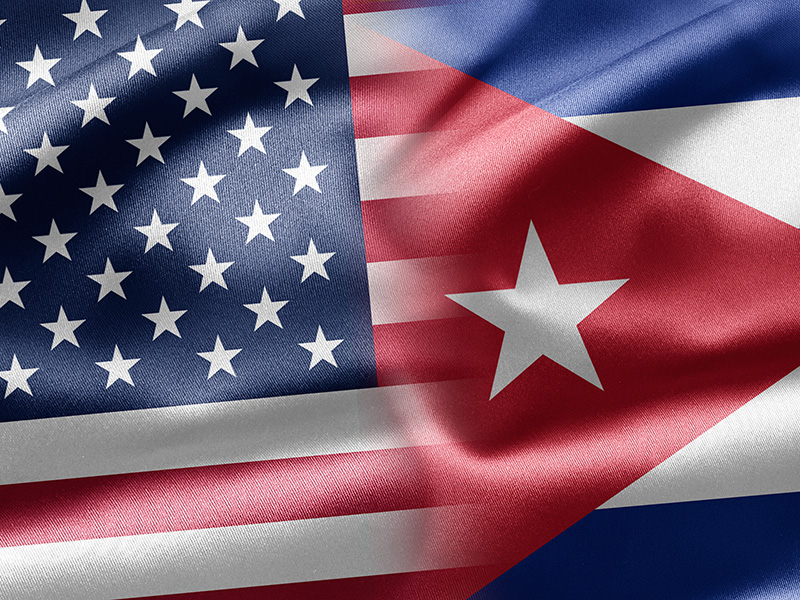Due to the U.S. annexation of Spanish Florida in 1819, Cuba, the largest of the Antilles, became the focus of Washington’s investment policy in the Caribbean basin. Starting in 1842, the United States repeatedly tried to incorporate Cuba through military force. The Cuban flag visualizes and memorializes the annexation policy of those days. After all, it is indistinguishable from the flag of Puerto Rico, a U.S. territory since 1898.
During the nineteenth century, Cuba became one of the wealthiest places on the planet because of sugar. Among the sugar-entrepreneurs who invested in Cuba were many US citizens. Contrary to popular belief, U.S. entrepreneurs were dependent on the hidden Atlantic Cuban slavery businesses and thus disadvantaged. It wasn’t until the occupation of Cuba in 1898 that the United States broke the Cuban monopoly in this respect. Cuba's sugar production increased from almost one million tons in 1895 to over five million tons in 1925. This rise in production was, in no small part, possible because U.S. banks financed Cuban efforts to profit from a speculative boom in world sugar prices in the 1920s.
This lecture will demonstrate the impact of U.S. entrepreneurship in (and on) Cuba before and after the occupation in 1898.
Michael Zeuske was born in Halle an der Saale (GDR) in 1952. In 1963, his father, Max Zeuske, accepted Ernesto Che Guevara's invitation to Havana to help establish a socialist education system in Cuba, which allowed the then 11-year-old to attend secondary school in Cuba. Zeuske studied at the University of Leipzig, where he became Professor of Comparative History and Iberian and Latin American History in 1992. In 1993, he accepted a professorship for the history of Latin America, Spain, and Portugal at the University of Cologne, where he taught Latin American and Caribbean history until his retirement in 2018. Since 1990, Zeuske has travelled through most of the Latin American and Caribbean countries, where he conducted extensive research and taught at several well-known universities. One particular focus of his research is the history of Cuba, especially entrepreneurship and slavery. From 2018 to 2019, Zeuske held a visiting professorship funded by the Johann Gottfried Herder Foundation at the University of Havana. Zeuske is currently a Senior Research Professor at the University of Bonn.
Moderated by Christian Cwik (President of the Association for Research and Culture about Continental America and the Caribbean; Center for Inter-American Studies, University of Graz)
The talk will be live-streamed through the Facebook page of the Austro-American Society for Styria (www.facebook.com/oeagstmk). No need to register; just tune in. Questions/comments may be submitted through Facebook.
This talk is brought to you in collaboration with the Association for Research and Culture about Continental America and the Caribbean and the Austro-American Society for Styria.
